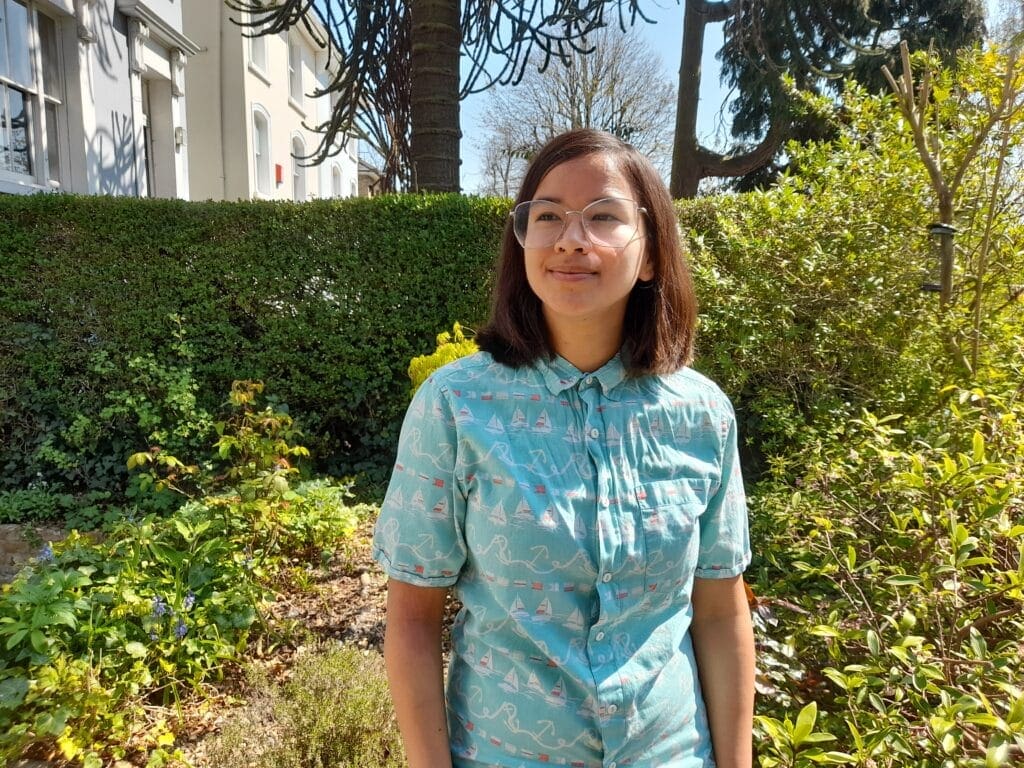
The top two reasons given by lesbians for delaying coming out was that they were afraid of their sexuality being viewed as “cringey or awkward” (30 per cent) or “wrong” (25 per cent), according to LGBT+ young people’s charity Just Like Us.
The charity surveyed 643 lesbians in the UK ahead of Lesbian Visibility Week, which found that harmful stereotypes, including that all lesbians are “butch”, are impacting how quickly the community feels able to come out.
Over-sexualisation of lesbians was the biggest barrier to coming out for those aged 18 to 24. Thirty-six per cent cited this concern – more than any other age group.
Pippa, a Just Like Us volunteer from London, said: “I started realising I was gay when I was 15, but didn’t really feel comfortable calling myself anything until I was 20.
“A lot of people made me think that I couldn’t be sure that I was gay, especially because I’d had a boyfriend before.
“I didn’t really know how to talk to people about it, because the word lesbian is so tied to sex and pornography that it always feels like calling yourself ‘lesbian’ is the same as sharing details about your sex life.”
The study found that gay women were also afraid of being seen as “masculine or butch” (31 per cent) and “unattractive” (22 per cent).
Four per cent were even concerned to come out because they believed being a lesbian is seen as “anti-trans”.
Mara, 20, a Just Like Us ambassador from Dudley, said: “I came out as bisexual at 15, lesbian at 17, and non-binary at 19. My high school experience was quite challenging at times, as the word lesbian was often used as an insult, so it was difficult to come to terms with being a lesbian when most of what I had heard about them was in a negative light.
“People would also often ask questions about my sexuality and try to assume things before I even properly knew myself. Boys would often try to ask rude questions, and girls would be disgusted at the idea of a lesbian.”
Amy Ashenden, director of comms at the charity, said: “It’s heartbreaking to see that the majority of lesbians are delaying living their lives to the fullest and feel unable to come out because of tired lesbophobic stereotypes that continue to be perpetuated, and this is something I regularly see lesbians struggling with.
“It is especially sad to see that lesbians are delaying coming out because they fear being seen as butch, masculine and unattractive – societally there is a lot of work to be done around embracing women of all gender expressions and bringing positive messaging around being a butch lesbian to the forefront.”
Previous research by Just Like Us found that the pandemic had a “profoundly negative effect on the mental health of young lesbians”, with almost nine in 10 (87 per cent) feeling lonely and separated from the people they’re closest to during lockdown.
Pippa Sterk wrote in an article for PinkNews: “For LGBT+ young people, being away from school could mean that they are forced to spend more time in an environment that does not accept them – and that’s hoping the school is accepting, which isn’t always the case.
“LGBT+ safe havens have generally relied on the availability of public spaces, exactly because we often need to go out to find other LGBT+ people.
“For lesbians this has a particular impact, as even pre-lockdown, it was difficult to carve out our own spaces. If LGBT+ spaces are scarce, finding spaces that cater specifically to lesbians is like finding gold dust.”
